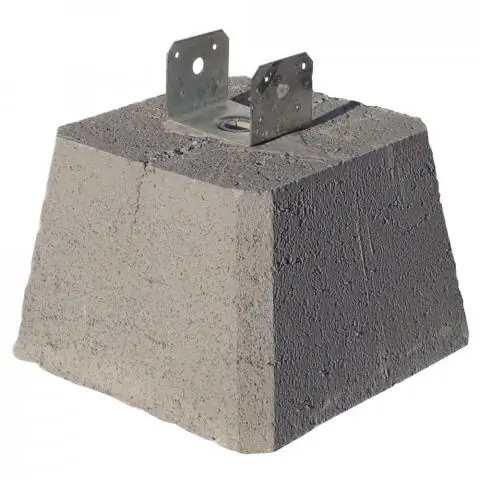
Table of contents:
- Bath doors: materials, design, do-it-yourself manufacturing technology
- What should be the door to the bath
- Determine the dimensions of the structure
- How to make a wooden door to a bathhouse with your own hands - step by step instructions
- Glass door manufacturing and installation
- Important to remember
- Author Bailey Albertson [email protected].
- Public 2024-01-17 22:26.
- Last modified 2025-06-01 07:32.
Bath doors: materials, design, do-it-yourself manufacturing technology

The doors to the bathhouse are the finishing touch in the construction of your own health complex. The comfort of your rest depends on their correct choice and installation, so do not be too lazy to find out all the nuances and follow the step-by-step technology when installing with your own hands.
Content
-
1 What should be the door to the bath
- 1.1 Photo gallery: options for sauna doors
-
1.2 Table: comparison of doors from different materials
1.2.1 Video: how to choose the right door for a bath
- 2 Determine the dimensions of the structure
-
3 How to make a wooden door to the bath with your own hands - step by step instructions
-
3.1 Stacked wooden doors
- 3.1.1 Photo gallery: stacked wooden doors
- 3.1.2 Manufacturing instructions
- 3.1.3 Video: feedback on the experience of making a type-setting door
-
3.2 Paneled wooden doors
- 3.2.1 Photo gallery: panel doors for a bath
- 3.2.2 Video: manufacturing instructions
-
3.3 Frame wooden doors
3.3.1 Manufacturing instructions
-
-
4 Manufacturing and installation of a glass door
-
- 4.0.1 Photo gallery: glass doors for a bath
- 4.0.2 Choosing glass
- 4.0.3 Installation considerations
- 4.0.4 Video: Glass door installation instructions
-
- 5 Important to remember
What should be the door to the bath
Sauna door requirements:
- High degree of water and moisture resistance. It is important that not only the material itself does not collapse in such conditions, but also that the door does not become a place of settlement for fungi and bacteria.
- Good tightness. A poorly fitting steam room door will make it more difficult to maintain the desired room temperature and make it more costly. If the front door to the bathhouse comes through, a heated person leaving the steam room will quickly catch a cold.
- Resistant to significant temperature changes. It is necessary that the door material withstands severe frost in an unheated period (when the bath is not in use) and does not suffer from strong heating of the steam room during rest.
All the described requirements are met by solid wood doors. In addition to them, metal-plastic (for the entrance) and glass (only for the steam room) are used. Variants of MDF, metal and other similar materials cannot be used in the bath, since in such conditions they turn out to be impractical and unsafe.
Photo gallery: sauna door options
-

Modest bath - Typical project of a bath house with a modest door
-

Fabulous bath - Fabulous bath and health complex
-

Carved door - Such a complex paneled door with carved platbands would be appropriate in a traditional bath.
-

Bathhouse entrance - The modest entrance lobby looks good in a log house
-

Porch door -
The entrance door to the bath can be double-leaf
-

Bucket door - The door to the steam room is traditionally made lower
-

French door - A metal-plastic door with a French layout is a very effective solution for a bath
-

Types of glass doors for a steam room - Glass doors to the steam room look stylish in both transparent and matte versions
Table: comparison of doors from different materials
| Door type | Advantages | disadvantages |
|---|---|---|
| Solid wood |
|
|
| Frame with wood cladding |
|
|
| Glass |
|
|
| Reinforced plastic |
|
|
Video: how to choose the right door for a bath
Determine the dimensions of the structure

The diagram shows the main dimensions that should not be changed.
Openings in self-built baths, as a rule, differ from standard ones. Therefore, before making a door and a box for it, it is worth carrying out basic calculations:
- Measure the width and height of the opening with a tape measure in order to avoid errors due to skewing.
- From the resulting width, 6 cm should be subtracted, from the height - 3 cm. So you get the external parameters of the box without taking into account the threshold. It is better to determine its thickness when the door is ready in order to neutralize possible errors.
- From the width of the box, subtract the thickness of the timber that you plan to use (the most popular 110x60 mm) and another 6 mm (the required gap on both sides). This will be the final width of the finished door.
- To determine the height of the door, subtract the thickness of the timber and another 18 mm from the height of the box (3 mm gap at the top and 15 mm ventilation gap at the bottom).
If the result obtained differs from the standard models by only 1-2 cm, you can make a standard door and simply use thicker bars to fix the box in the opening.
How to make a wooden door to a bathhouse with your own hands - step by step instructions
A wooden door is the most common option for a bath. Despite the existence of new technologies, wood remains the most popular material for all types of sauna doors: entrance, interior, steam room. In order for them to last a long time, you should not be satisfied with inexpensive models, as they will quickly swell from moisture. You need to choose the right breed, for example:
- Oak. This is a very dense and not prone to swelling wood, but it is difficult to work and prone to cracking.
- Larch. The massif of this breed is optimal for wet rooms, it has natural antiseptic properties, therefore it does not rot, mold and is not attacked by woodworm beetles.
- Aspen. The material is inexpensive, is not afraid of overdrying and is well preserved in humid rooms.
Sometimes a light fragrant linden is used for doors, but it rots quite quickly. Analogs from pine are also popular, but together with a pleasant smell, such wood gives off a sticky resin. The spruce is not so resinous, but less moisture resistant, so it is not suitable for a bath either.
Stacked wooden doors
Wooden doors of a type-setting type are assembled from identical parts, for example, a grooved floorboard. This is the best way for a beginner to make doors. Despite the simplicity of work, typesetting canvases can look very attractive, especially if you choose decorative forged hinges and handles for them. They look best in traditional log cabins (real or imitations) in a rustic style.
Photo gallery: stacked wooden doors
-

Stacked wooden entrance doors - The original entrance to the bath is complemented by a simple type-setting door
-

Inlaid wooden interior doors - The lacquered front door makes it more noble
-

Inlaid wooden doors under the visor - A simple type-setting door to the bathhouse looks stylish thanks to brutal fittings
-

Original inlaid wooden doors - Such an original door to the bath can be made from the remains of lining and boards
-

Stacked wooden doors with masculine design - Such a brutal door is perfect for a rest room.
Manufacturing instruction
Required tools:
- jigsaw for leveling the length of the boards;
- screwdriver for working with self-tapping screws;
- a plane for leveling the thickness of the door leaf;
- clamps for fixing the door leaf while gluing the boards;
- sandpaper for sanding wood;
- punch for drilling holes for hinges and handles;
- feather drills for a hammer drill;
- handle a router for grooving;
- tape measure;
- building level;
- mallet;
- calipers.
Necessary materials:
- tongue-and-groove boards 25-30 mm thick and 2100 mm long (the quantity depends on the desired door width and the width of the material itself);
- wooden beam 30x20 mm, which is needed to reinforce the door leaf;
- joiner's glue for sealing joints;
- self-tapping screws for wood;
- hanging hinges (2-3 pcs.);
- handle with a locking mechanism (1 pc.).

Detailed diagram for making a door from a grooved board
Consider the process of making a type-setting door of a standard size 0.8x2 m:
-
Cut the boards so that each board is 2 m +/- 2 cm long. The final alignment can be done after gluing the web.

Trimming boards For easier work, you can draw a line with a pencil on masking tape.
-
Assemble the canvas by alternately joining the boards until the width of the canvas reaches 0.8 m, or slightly exceeds it. Make sure that the structure is flat by laying it on a horizontal plane without bends. If you notice that one corner is raised, or a hump has formed, it is better to choose more even boards for the door. When done correctly, number the boards with a pencil and disassemble the canvas.

Thorn-groove connection The spike of one board should fit snugly into the groove of the previous
-
Reassemble the canvas, carefully gluing each groove with wood glue. The boards should be connected one by one, following the pencil marks. The tightness of the connection is ensured by light blows of the mallet through the block so as not to damage the board.

Assembling with a hammer The method of sealing joints is the same as when assembling the floor
-
Secure the canvas with clamps so that all joints are tightly compressed. The bonding period is indicated on the packaging of the wood glue, it usually ranges from 1 to 5 days. The thickness of the finished blade, if necessary, is leveled with a planer and sandpaper. After that, a blank is cut out of a single layer according to the size of the door - excess fragments are cut off along the length and width.

Gluing the canvas A bar on self-tapping screws is needed for temporary fastening, then a key will be in its place
-
After that, in the monolithic canvas, you should select the grooves for the key in it at a height of 1/3 of the door height, counting from the upper and lower edges of the canvas. The shapes of the keys are shown on the general scheme of the type-setting door, only trapezoidal is available for beginners.

Wood milling The easiest way to make a neat groove is with a hand router.
-
If you do not have enough tools or experience to create such a high-quality connection, the key may not be recessed. In this case, its fastening is carried out by drilling through holes in the canvas and hammering in wooden chops of a slightly larger diameter (dowels). The connection with self-tapping screws in such cases is highly undesirable.

Drilling dowel holes You can connect both solid wood and plywood with wooden dowels
- If the design of the web is not rigid enough, you can fix a diagonal brace (jib) between the dowels using a similar technology.

From impregnation with oils the wood acquires a noble color
Finishing of interior doors for a bath is carried out with environmentally friendly impregnations, mineral oils, waxes. But it is better to leave the door to the steam room untreated, since there is always a risk that harmful components will begin to be released due to the temperature.

The box for the door and window opening in the bath is assembled in the same way
We start making the door frame:
-
Select a quarter on blanks of a wooden beam with a section of 11x6 cm. The depth of the cut groove should be equal to the thickness of the door.

Quarter milling A manual router will help to make a neat groove.
-
Assemble the box from the timber so that the door leaf fits into the created recess with a gap of 1-2 mm. It is very important to maintain the correct geometry of the box, if the corners are not 90 degrees, the door will not open and close well.

Box connection methods Methods for attaching the bars to assemble the box
-
The box is installed in the opening with a recess outward so that the gap between the door and the box is closed with a ledge. At the same time, heat loss in the bath is minimized. It is important that the opening is noticeably larger than the door frame (3-4 cm on each side). This will make it possible to more accurately align the location of the box and prevent its deformation due to shrinkage of the house or swelling of the material from moisture. To align the location of the box, small wooden blocks are placed.

Sizes of doors and openings An example of the ratio of the dimensions of the opening, frame and leaf for standard doors
-
The level door frame is fixed to the wall with anchor bolts (2-3 on each side) or with long self-tapping screws through the placed bars / wedges.

Box installation Installing a typical door frame using self-tapping screws
We proceed to the installation of the door leaf in the box:
-
Make markings for the hinges on the door leaf and the frame so that the hinges are located at the same distance from the top and bottom of the leaf (standard - 20 cm). You can fasten them at the level of the dowels, and for a heavy structure, you should also add a loop in the middle.

Layout for hinges Hinge markings can be done with a simple pencil
-
Fasten one half of the hinge to the door, and then fix the other on the door frame using the screws from the kit or wood screws. It is best for beginners to choose butterfly hinges, since you do not need to make grooves for them at the attachment points.

Butterfly loop The butterfly is attached to the end of the door and the frame without recess
-
Hanging the door is best done with an assistant who will help align the marks and hold the canvas while attaching the hinges with self-tapping screws. If there is no assistant, you can put several wedges under the canvas and use them to fix it in the desired position.

Screwing self-tapping screws into hinges To fasten the hinge to the box, craftsmen often use long self-tapping screws that go through the box into the wall
-
After fixing the hinges, set the handle at a comfortable height. For the front door, you should choose a handle with a locking mechanism, for which a groove of an individual size is selected in the canvas (depending on the handle model). The wooden handle in the steam room is usually laid on, so you will not have to choose the grooves for it. It is most convenient to make sure that the hinges are fastened correctly and remove the blade for inserting the door mechanism, and then hang the blade again.

Wooden handle with lock To install such a handle, it is enough to drill only two mutually perpendicular holes
-
Fill the space between the wall and the box with polyurethane foam. After complete drying, the foam must be trimmed so that it does not protrude beyond the edges of the box.

Door assembly Sectional view of the door frame with platbands and installed door leaf
-
Decorate the joint between the box and the wall with platbands of the chosen model. You can make them yourself from unedged boards with a live edge, and fix them with small carnations.

Fixing platbands The easiest way to fix wooden platbands
Your door is now ready for active use.
Video: feedback on the experience of making a type-setting door
Paneled wooden doors
Wooden doors with panels are much more difficult to make than type-setting. Here you will have to connect a lot of curvilinear parts to each other and very clearly maintain the geometry. Therefore, it is worth taking on such work only after you have experience in the manufacture of other types of wooden doors.
Since the joints of the parts are especially sensitive to increased humidity and temperature, such models can only be installed in the locker room and the rest room. At the entrance to the bath, steam room or shower, they will last much less than the prescribed period.
Photo gallery: paneled doors for a bath
-

Paneled doors with decor - The steering wheel on the door is an easy way to make it unusual
-

Paneled doors in a frame - Classic doors with simple panels are suitable for changing rooms and lounges
-

Paneled doors of various models - By changing the size and proportion of the panels, you can create completely different doors
-

Dark paneled doors - The door with asymmetrical panels looks very stylish
-

Paneled doors with and without glass - This door design is the most durable option for a bath.
Video: manufacturing instructions
If you are not yet able to make a paneled door, you can order a simple door leaf and assemble the box yourself. It is made using the same technology as in the case of type-setting doors.
Frame wooden doors
A frame door with insulation inside is most often assembled to create an entrance group. It consists of an inner frame, divided into cells to accommodate insulation (preferably stone wool) and outer cladding. Its manufacture is a little more complicated than assembling a type-setting door, but easier than a panel door.

Sectional structure of a frame insulated door
As external decorative cladding, you can use wooden strips, lining, thin grooved boards, MDF panels, metal sheets.
Manufacturing instruction
Required tools:
- drill;
- manual or stationary router;
- chisel for sampling grooves for fastening hinges and locks;
- yardstick;
- building level;
- planer for leveling the thickness of the boards;
- hammer / wooden mallet;
- construction stapler;
- sandpaper.
Necessary materials:
- frame boards;
- stone wool for thermal insulation;
- wind and moisture protection membrane;
- joiner's glue;
- self-tapping screws for wood;
- wooden lining for cladding.

Pay attention to the correct connection of the frame elements
Consider the manufacture of a door measuring 1.92x0.82 m for a box with parameters 2x0.9 m:
-
Assemble the frame from 5x11 cm boards, as shown in the figure. Carefully make sure that all angles are equal to 90 on.

Connection types Keep in mind that the floor-to-tree connection is much easier.
-
Check if the structure is correctly assembled by placing it on a horizontal plane. If necessary, trim the thickness of the boards and seams with a plane and sandpaper.

Plane An electric plane is not required, you can do it manually
-
Attach the windshield membrane to the frame using the staple brackets.

Construction stapler This simple tool is useful for more than just making a door
-
Fill the resulting cells with non-combustible and safe stone wool.

Insulated door Construction of a frame insulated door
-
Cover the structure with a wind and moisture protection membrane on the other side.

Membrane fixing The membrane can be fastened with a single piece or fragments to fit the cell size
-
Trim both sides of the door with wooden clapboard, attaching each strip to the frame with a self-tapping screw inside the groove so that the next strip completely covers its head.

Clasps You can also fix the lining to the frame using clasps
-
If necessary, trim the ends of the door with a plane and sandpaper.

Grinder Sanding is best done with a sander, but you can simply attach the sandpaper to an unnecessary block
-
The gaps formed after assembly can be filled with a mixture of PVA glue and finely ground sawdust (wood flour can be made by yourself in a coffee grinder).

Sealing cracks with sawdust This technology is used to seal cracks in any wood products.
If the doors will stand at the entrance, you can treat them with a stain, high-quality antiseptic and cover them with several layers of varnish.
Glass door manufacturing and installation
It is best to install doors made of tempered glass or triplex (glued from two layers) in the shower and steam rooms of the bath. For the manufacture of such structures, a specialized machine is needed for processing the edges of sheets with a large thickness, as well as an oven for hardening the material after drilling the mounting holes, so it is impossible to make them in artisanal conditions. But you can order a canvas from a glass company and independently supplement it with fittings and install it in the opening.
Glass doors are always a winning decorative solution, as they give the sauna a modern and stylish look. Also it is well keeps the temperature in the steam: When the inner side of the web 80 is heated to about C exterior remains warm to the touch (approximately 40 to C). In addition, a glass door is an additional source of natural light in a small, cramped steam room / shower room, where there is not always a separate window.
Photo gallery: glass doors for a bath
-

Glass swing doors - Swing mechanism - the most reliable for a steam room
-

Glass partition with door - So that the steam room does not seem cramped, you can separate it with a glass wall
-

Glass doors with different glasses - Glass for a bath door can be matte, transparent, colored
-

Transparent glass doors - The transparent glass door of the steam room looks good next to the same shower stall
-

Patterned glass doors - The glass door can be decorated with any sandblasted pattern
Choosing glass
The thickness of the glass should range from 6-12 mm, but 8-10 mm is most preferable. A thinner blade is easier to break, and a thicker blade will be too heavy and lead to faster wear on the hinges. The width of the door is limited by the wear resistance of the fittings, experts recommend choosing door leaves no more than 0.8 m wide. Such a wide heavy door will last longer if it is hung on 3 hinges. If you want to enclose the steam room with a glass wall, the door can be made narrower or double-leafed, and the additional canvases can be installed permanently. In such cases, the width of the addition is limited only by the area of the corridor (workers simply cannot carry a very wide and high canvas inside).
The glass does not have to be transparent, it can be decorated with a sandblast pattern, or completely matted. In addition, manufacturers offer colored glass, painted over in the mass (along the entire thickness of the material): graphite and bronze. There are options made of enlightened glass, without a greenish tint at the end.
Installation features
Glass companies produce doors of different types of opening: swing, sliding, pendulum. It is best to give preference to the swing option, since the most compact and durable fittings are used for them. The use of other mechanisms is an additional risk of scalding on the guide.
Required tools:
- a screwdriver for installing hinges in a box;
- building level to check the geometry of the box;
- handle with rubber suction cups for working with glass.

Such an inexpensive tool will greatly facilitate the movement and support in the desired position of the smooth glass sheet.
If you already know how wooden doors are mounted, you only need to familiarize yourself with the main differences:
- When installing a glass door, it is necessary to carefully protect the door leaf from damage. Triplex and tempered glass hold frontal loads well, but they can crack due to impact on the butt.
- A glass door even of a small width turns out to be very heavy, it is simply impossible to install it yourself, even if you skillfully change the interior wooden doors without helpers.
- A glass door leaf cannot be leaned against a wall like a wooden one. It should be installed horizontally on a table or wooden planks so that the load is evenly distributed and the canvas does not touch the floor.
-
Hinges and handles must be specialized for glass. Other models will not stick to the canvas, besides, an ugly fastening mechanism will be visible to the eye.

Wooden handle for glass door Only 2 screws are used to fix the wooden handle in the glass
- Make sure that the sealing silicone for the door is heat-resistant, otherwise, already at the first use, you will expect an unpleasant smell, harmful fumes and heat loss.
We recommend installing the glass door for the steam room in a wooden box. In the shower, you can use wall mounts, fixed glass or metal boxes.
Video: instructions for installing a glass door
Important to remember
Mandatory nuances:
- The box for the door to the bathhouse, including the steam room, is made only of wood (even if the door leaf is glass). Choosing a glass door in an aluminum box, you risk getting burned every time you leave the steam room.
-
The bath door handle can be made of metal only if the door does not lead to the steam room. If the holiday home has several rooms and the same doors with handles are everywhere, it is better to ignore the design and give preference to practicality. Pick up an original wooden handle without varnish or stain. Otherwise, the metal in the steam room will inevitably lead to burns.

Glass door handle Notice how carefully the mounting holes are hidden by the decorative caps.
- Non-natural materials must not be used in the steam room. Otherwise, at high temperatures, the binding components of chipboard, glue, varnishes and wood impregnations will be released and you will have to inhale them together with the steam. Therefore, a wooden door should be unfinished, and its durability will be ensured by the correct choice of wood - larch, aspen or oak.
- The ideal steam room lock is magnetic. It has no moving protruding parts, so it is the safest and most durable.
Now you can make a beautiful and reliable bath door on your own. Follow the instructions and try to perform all actions as accurately as possible, and then the new door will delight you for decades with its appearance and flawless work.
Recommended:
How To Make A Bar Stool With Your Own Hands From Wood, Metal And Other Materials + Drawings, Photos And Videos

Bar stools manufacturing options. Required tools, materials used. Step-by-step description of the manufacturing process with a photo
How To Make A Veranda With Your Own Hands To The House - Instructions, Projects, Drawings, Photos And Videos

The article describes how to build a veranda close to the house with your own hands
How To Make A Kite With Your Own Hands At Home: Options With Drawings And Sizes + Photos And Videos

DIY kite: the necessary materials, diagrams, drawings, manufacturing steps. How to make a kite of different shapes. Secrets of a Successful Launch
How To Make A Long Burning Stove With Your Own Hands: Manufacturing Instructions With A Diagram And Drawings + Video

How to make a long burning stove with your own hands. Consumables, recommendations, diagrams, design features
How To Choose And Build A Foundation For A Bath With Your Own Hands - 4x6, 3x4 And Other Sizes, Tips, Instructions, Photos And Videos

How to make a foundation for a bath with your own hands. Types and features of foundations. The choice of materials and technology, installation rules and step-by-step instructions
